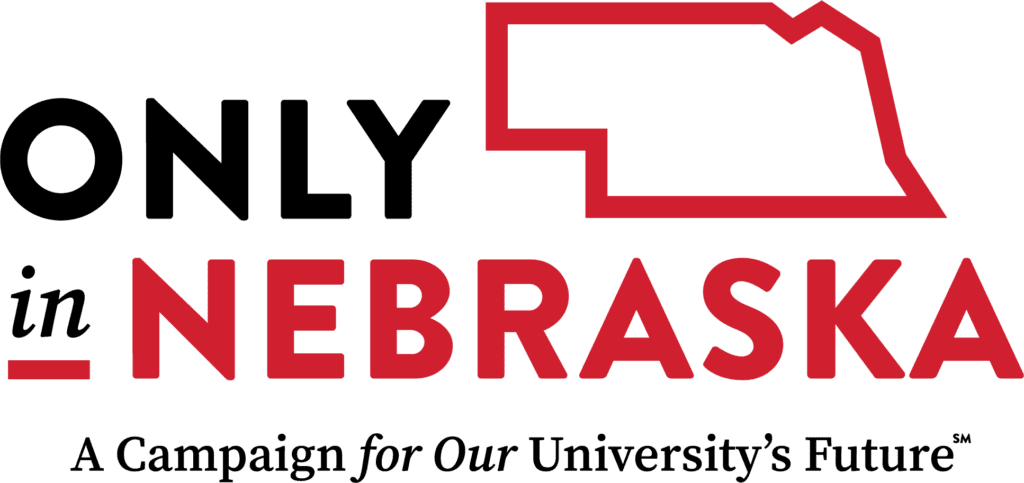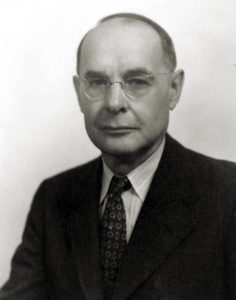Berexa’s curiosity prompted her to reach out, and with the help of the University of Nebraska Foundation she discovered more than she could have imagined. The foundation’s Joye Fehringer put together an album of all the photos and information she could find about Clark’s time on campus. Berexa learned he not only attended UNL, but he also returned to the university in 1941 to serve as the second dean of the College of Business Administration. She read a poem he had written his wife-to-be, and she learned that he’d played on the all-class champion basketball team in 1902 and that he was methodical — just like she is.
“It’s as though I felt their presence all around me and filled a part of me inside, a piece that had always been missing,” she said at the time. “It was an amazing feeling.”
“A university where people have chances”
A campus history guide gave Berexa a tour, and she visited the building where Clark used to work and saw his photo hanging in the hall. She said she felt an instant connection.
“I jokingly say to people that I’m secretly Nebraskan,” she said with a laugh. “But there’s a part of me that actually feels that way, because I just loved it there. And I love the people, and I loved what the school stands for.”
Berexa is no stranger to great schools. Prior to a successful career in finance and business, she attended the Ivy League’s Columbia University in New York. But she said Nebraska is unique, and she loves the way the university welcomes everyone.
“It’s a university where people have chances,” she said. “It’s so student focused. It’s welcoming and affordable … I was massively impressed by the amount of hard work that the university does to provide an opportunity for people. I thought that was phenomenal.”
Berexa also learned that Clark believed in “paying it forward” and had established a scholarship to help the “worthy and needy” attend UNL. Berexa set up her own scholarship in his honor — the John D. Clark Courage and Commitment Fund for students majoring in economics or political science or minoring in human rights. Later she established an additional scholarship in honor of her great-grandmother, Joyce Broady Clark. Now she serves as a trustee at the foundation, where she gets to tell people about the place her great-grandparents loved.
“Nebraska seems like one of the best-kept secrets in town,” Berexa said. “One of the wonderful things about being a trustee is that I get to talk about this place. I get to tell people all these surprising things that nobody knows about. I think that’s our biggest job, that’s really what we should be charged with — to go out and be ambassadors.”
Berexa said her great-grandfather could have gone anywhere, but he chose to come back to Nebraska because there’s no place like it.
“There was something about it he really loved.” she said.








